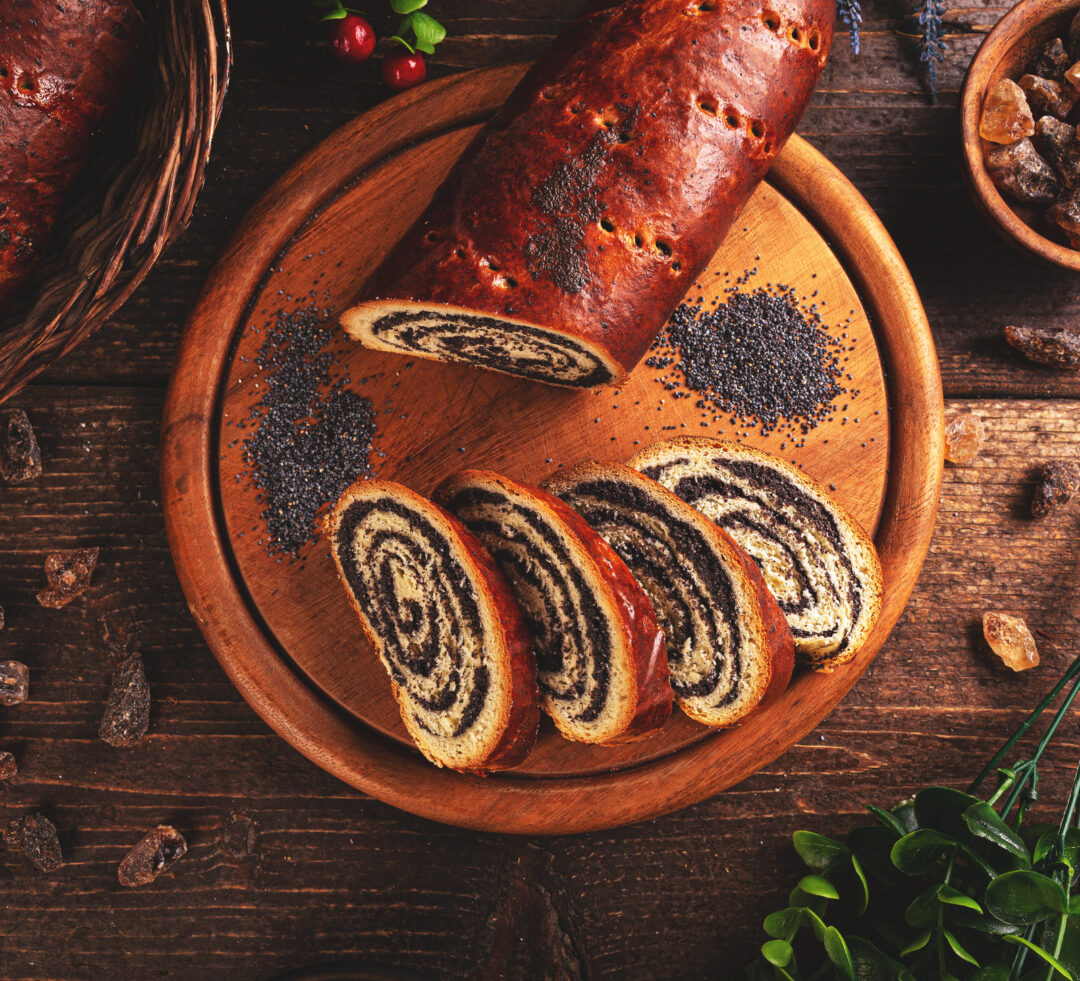By Beryl Howard
Mákos Beigli is a cake-like yeast roll with a poppy seed filling.
Throughout Hungary, Beigli (pronounced buy-glee), a uniquely flavoured sweet yeast pastry roll, appears around Christmastime and can be bought in practically any Hungarian shop or bakery. It was the all-time sweet favourite of my late Hungarian-born husband who grew up watching his mother bake it for her family, with him salivating in anticipation.
The primary filling was the most popular medieval central European spice, poppy seeds (mák in Hungarian), and the rolls became known simply as mákos (pronounced maa‑kosh). Later, a secondary filling of ground walnuts, diós (pronounced dee-osh) also became a national favourite. Today both beigli flavours are traditional in Hungarian cuisine and the rolls, one with each filling, are traditionally served together as festive fare. From a land renowned for its pastry, both mákos and diós beigli rank with the best of Hungarian specialties and most families in Hungary have their own Beigli recipe.
My initial tasting of mákos Beigli revealed its unusual crumbly, but moist texture and its sweet, fruity spiciness as the key distinctive features. To achieve this texture and flavour, poppy seeds require the cook’s attention to washing, grinding and baking at a high temperature in order to reduce residual alkaloids, oils and to bring out the nut-like flavour.
Lengthy preparation of both pastry and filling makes beigli a baking challenge for all the time-poor bakers in today’s crazy fast-paced world, thus it is never found in an Australian bakery and baked at home only by a skilled few. It’s also considered an acquired taste, requiring a niche market.
My late husband was a regular customer at the Perth Hungarian Club’s festive market days where the Hungarian ladies would sell home-made Hungarian delicacies, including beigli, to raise funds for the club. Afternoon coffee with a slice or two of mákos Beigli, a centuries old tradition in the coffee houses of Budapest, remains a delightful Sunday afternoon treat which, whilst rarely practiced in Perth, was deeply engrained in my darling husband’s psyche as was his life-long taste for Mákos Beigli lovingly handed down from mother to son.

